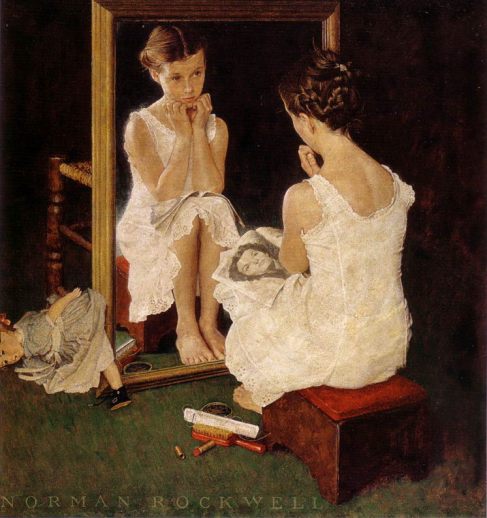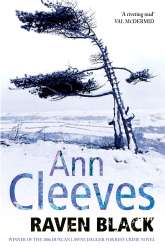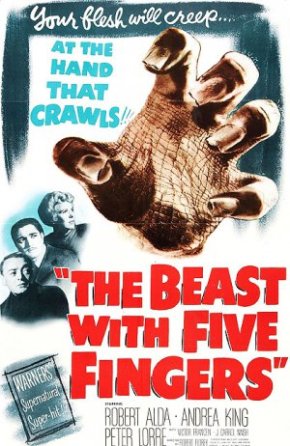When they were kids, some of them feared they would awaken to find that one of their parents had died in the night. One woman was so afraid her parents would die in their sleep, she visited their bedroom to check that they were still breathing.
More commonly, these adults cite such standard childhood embarrassments as hearing a waiter in a restaurant say to their parents, “Oh, I see you brought your grandchildren.”
And for some offspring of older parents, the pressures only intensified with time.
Debra McKee, 33, a hairdresser-graduate student from Whittier who has lost touch with her father and whose mother died a year ago, recalled: “My mom was 39 when I was born and my father was 50. They were already grandparents by the time they had me.
“When I was 20, my mother was on Social Security and becoming more dependent on me. I thought I’d have to hurry up and have my kids so they could have time with her and she could enjoy them before she died.”
Yet other children of older parents cherish the reality that their parents differed from the norm. “They had their act together,” David Wilson, a 38-year-old actor and television host, said of his mother (39 when he was born) and recently deceased father (50 at his birth).
“They were very healthy and fairly fit. Their wiseness and stability were real advantages. It really helped me have a more settled feeling in growing up, especially in the flaky business that I’m in.”
Controversial New Book
Sociologist Monica Morris calls individuals like Wilson and McKee “last-chance children.” And in her controversial new book (“Last-Chance Children, Growing Up With Older Parents”: Columbia University Press), the author describes research that may rock the bassinets of couples who are deferring parenting until their late 30s and beyond. Already, she acknowledged, she has been accused by some older parents of stirring up trouble where none exists.
Among Morris’ findings: While there are many benefits to being the child of older parents, about half the grown children in her survey also perceived painful disadvantages.
And while the subject of late-parenting has been explored repeatedly in social research and the popular press, Morris claims her book offers one of the first investigations of children’s perceptions of what it means to live with older parents.
A sociology professor at Cal State Los Angeles, Morris was intrigued at the numbers of women postponing childbirth and talking only of how wonderful this would be for their offspring. How nice it would be, this view held, that these babies would be born into households that were ready for them, economically and emotionally. What a boon that parents would have a chance to know who they were before having to help a clone of themselves deal with the same discovery.
The only time Morris encountered people exploring the disadvantages of late-parenting was on a television situation comedy, “The Cosby Show.” In one episode, she recalled Clair Huxtable’s consideration of having another child before the last seconds on her biological clock ticked away, and Cliff Huxtable’s response: “By the time that child leaves home, we’ll be ready to go to one.”
The Huxtables finally nixed the idea of another baby. But increasing numbers of Americans have decided in favor of the option; the U.S. Census Bureau has charted a dramatic increase in mothers bearing children at age 35 or later.
Martin O’Connell, chief of the Bureau’s fertility statistics branch, said there was a 71% increase in births to women 35 and older between 1975 and 1985. (Though such births are still in the minority, they grew from about 4.6% or 143,356 of the recorded births in 1975 to about 6.5% or 243,832 of the births in 1985.)
Although no official vital statistics exist for the years since, O’Connell said unofficial “survey data” collected by the Census Bureau suggests the trend continues. More births to mothers 35 and older also are being predicted, in part because the number of women in that age group also is expected to increase in the next few years, he said.
Because Morris felt it would be extremely hard to gather a truly random sample of children born to older parents (“birth records are just not kept this way,”) she decided on “a phenomenological approach.” She told people she was looking to interview children of older parents (one of her students posted a sign soliciting volunteers in a large Los Angeles corporation), and wound up interviewing 22 children whose parents were at least age 35 when they were born.
The result was not traditional “survey research,” but data similar to that sometimes collected by anthropologists. “In this type of research one draws patterns from the findings. It isn’t the standard view of what science is,” she explained, “but it’s still respected science.”
After 22 separate, one- to five-hour interviews with men and women aged 17 to 54 (all Americans reared in six different states save for one who grew up in Britain), Morris found her subjects almost evenly divided on the issue. Half the “late babies” found the experience positive or unaffecting; the other half said their parents’ ages “affected their lives deeply and usually negatively.”
And when Morris asked her subjects if they would choose to have children at relatively advanced ages or would recommend late-parenting to their friends, only two wholeheartedly endorsed the practice.
Morris, a London native and now a Hollywood resident and U.S. citizen, is in her 50s and had her own children in her 20s and early 30s. She is careful neither to recommend nor condemn late-parenting. “If they want to have children, who am I to say what they should do? People must do what they must do, but they should be aware of the (possible) disadvantages to the child,” she said.
The most often cited disadvantage of the now-adult late-children, Morris said, also was the least serious. Her subjects repeatedly told her that as children and teen-agers they were embarrassed their parents looked so old, so different from the parents of their peers.
The next, most-cited disadvantage was extremely serious: “The (children’s) fear that they would have to be responsible for their aging, ailing parents while they were still young.”
Other disadvantages the subjects described included having parents unwilling or unable to participate in sports (a frequent sore-spot with men surveyed), having parents who were more likely to die when they were still young, and experiencing a “double generation gap” between themselves and their parents.
More Settled Parents
On the plus side, the children most often cited the advantage of having parents who were more settled financially and emotionally. Some subjects also perceived that their older parents were wiser and more patient than younger parents. And a few of the interviewees also believed their parents’ marriages to be more stable than those of younger parents.
Morris, who has recently discussed her research on television talk shows and radio call-in programs, conceded her research is unsettling to many of today’s older parents. They typically tell her that the advantages they offer their children far outweigh any disadvantages.
“What they say is that things are different now,” she said. “We eat better. We exercise. They really think they’re going to live forever.”
Morris also said that some older parents react defensively when they encounter her findings. “Some people will not really read what you write,” she lamented. “They see only the part that upsets them. I’ve had numerous people write and say that older people can be better parents, which may be perfectly true. I never deny that. . . . My contention is that parents and would-be parents . . . should acknowledge there may be problems for their children and should be prepared for them.”
In the academic world, the reaction to “Last-Chance Children” has been mixed. Ed Zigler, Sterling professor of psychology at Yale University and the founder of the Head Start program for disadvantaged preschoolers, described Morris’ findings as making “good sense.”
But he cautioned, as does Morris, against stereotyping older parents on the basis of age. “The fact is some older parents stay young until they’re 85, some are middle-aged by the time they’re 25,” he said. “But by and large, I’m rather impressed with what she’s done. She has much too small a sample to draw any conclusions, but she knows that. What you lose in numbers, you make up in depth.”
Counsels Children, Families
Patrick Bezdek, an assistant clinical professor of child psychiatry at UCLA who also counsels children and families in his Century City practice, has heard some of Morris’ observations before. “I’ve had a number of (patients) not necessarily complain, but say how hard it was for them having parents who were older,” he said.
But he emphasized that older people can be energetic parents who have little difficulty understanding and empathizing with their children. And he reported that older parents are becoming the norm in some circles. “The more successful people are, the more likely they are to postpone childbearing. Most of the people in my son’s class at a private Westside elementary school have parents who are older,” Bezdek said.
Elaine Gordon, a Santa Monica developmental psychologist who specializes in fertility and alternative-parenting options, noted that today’s older parents are hardly the same as those a generation or two ago.
“We do live longer nowadays. An older parent of 20 years ago is not what an older parent is today,” said Gordon, who with her clinical psychologist husband, Edwin Greenberg, adopted a daughter 3 1/2 years ago when she was 38 and he was 46.
“There are definitely some people who shouldn’t be parents and it’s not age-related. Age could be one of the issues, but certainly not the most important one,” she contended. “I think you can care for and love and respect and nurture children at any age. It’s really an individual issue.
“I don’t think younger or older is particularly better. Perhaps there’s a physically ideal time to have a child or an emotionally ideal time or a financially ideal time. But those times usually occur at different ages.”
Greenberg admitted that he has examined many of the issues that the couple’s daughter could face as a result of having older parents, particularly that he could die when his daughter is still a very young woman.
“It certainly crosses my mind,” he said. “If it were a perfect world, I’d have everything. I’d like to think that I will live and she will have me for as many of the important occasions in her life as possible. I try not to dwell on what I have no control over. I could drop dead tomorrow, but if I worry about that, it’s more apt to happen.”
Despite such rational views, much conventional wisdom still favors younger parents. A case in point, social worker Sharon Kaplan reported, is the criteria–stated or unstated–used by adoption agencies in placing healthy newborns.
Kaplan spent 23 years working for both public and private adoption agencies before she became director of Parenting Resources in Tustin, a counseling and education firm that specializes in adoption and foster care issues.
While researching a related topic, Morris said representatives of three adoption agencies told her, off-the-record, that they like to choose younger parents when possible, if everything else is equal.
No State Law
“Because there’s no state law that dictates age is a criteria for adoption, agencies have to be very careful about what they say on this issue,” explained Kaplan.
The rationale behind such unstated policies? “What I hear as the reasoning behind it is that to be an adoptee already makes you different, already makes you part of a minority,” Kaplan said. “And then to have your parents stand out in some way–perhaps when you’re in kindergarten your mother looks like everybody else’s grandmother–that’s just one more difference. They like to cut the differences.”
Morris would just like to see current and prospective late parents recognize more differences–variations in the ways they may see the parenting experience and the ways a child might.
“I don’t want to throw more guilt at them than they feel already,” she insisted, addressing herself specifically to those keeping up with demanding careers while also rearing demanding children. “But it’s very hard to have it all, especially all at once.”






